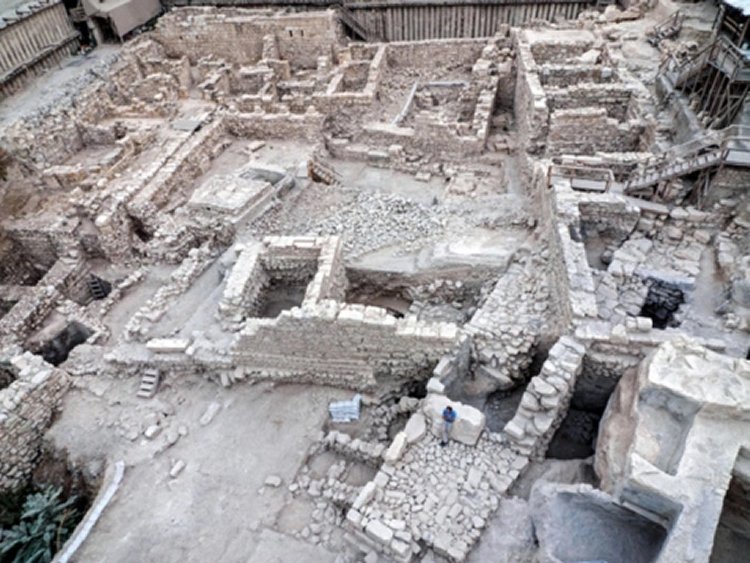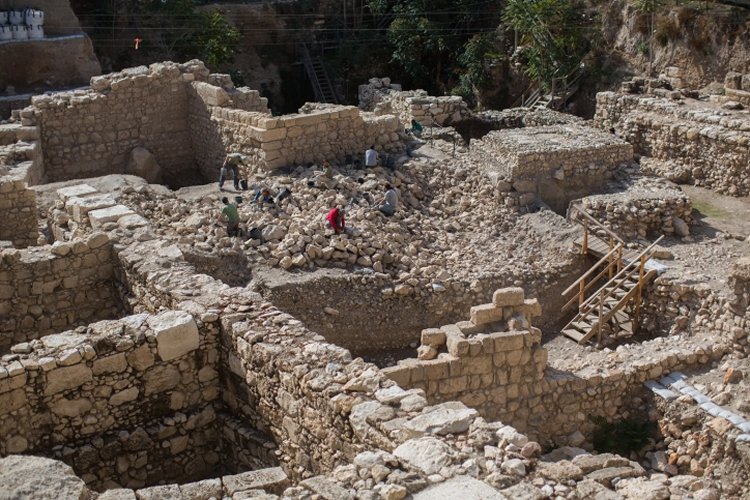MessageToEagle.com – After 10 years of excavations, Israeli archaeologists have finally solved “one of Jerusalem’s greatest archaeological mysteries” — identifying the location of the Acra, an infamous fortress used by ancient Greece to control the Jewish Temple and Jerusalem more than 2,000 years ago.
Despite the central role the Greek stronghold played in the struggle for control of the city and holy Temple during the Jewish Maccabean revolt, historians for centuries have been unable to pinpoint the location of the Acra fortress, which was described in the book of 1 Maccabees.
The fortress was built by the Greek Seleucid Empire ruler Antiochus Epiphanes after his troops overran the holy city in 168 B.C., reports The Blaze.

The Israel Antiquities Authority announced Tuesday that its researchers had excavated evidence of the Acra in a parking lot in the City of David outside the walls of Jerusalem’s Old City — a culmination of 100 years of archaeological research.
Among the evidence discovered: part of a “massive” wall, the base of a 13-foot by 66-foot tower and a sloping, defensive embankment known as a glacis.
The Antiquities Authority noted that the glacis was “composed of layers of soil, stone and plaster, designed to keep attackers away from the base of the wall” and that it “constituted an additional obstacle in the citadel’s defenses.”

Lead sling shots, ballista stones and bronze arrowheads stamped with a trident — the symbol of the reign of Antiochus Epiphanes — were also found at the site.
The Antiquities Authority offered more information on the history of the site:
Historical sources state the stronghold was occupied by mercenaries and Hellenized Jews and tell of the suffering Jerusalem’s residents were exposed to at the hands of the Acra’s inhabitants. The fortification’s mighty defenses withstood all attempts at conquering it, and it was only in 141 BCE [B.C.], after a prolonged siege and the starvation of the Greek garrison within the Acra that Simon Maccabeus was able to force its surrender.
Both the book of 1 Maccabees and the historian Josephus Flavius placed the Acra in the City of David.
1 Maccabees 1:35-38 reads — according to a translation provided by the Antiquities Authority:
“And they built the city of David with a great and strong wall, and with strong towers, and made it a fortress [Greek: Acra] for them: And they placed there a sinful nation, wicked men, and they fortified themselves therein.”
“This sensational discovery allows us for the first time to reconstruct the layout of the settlement in the city, on the eve of the Maccabean uprising in 167 BCE,” excavation directors Dr. Doron Ben-Ami, Yana Tchekhanovets and Salome Cohen said in a joint statement.
“This stronghold controlled all means of approach to the Temple atop the Temple Mount, and cut the Temple off from the southern parts of the city,” the researchers said.
“The numerous coins ranging in date from the reign of Antiochus IV to that of Antiochus VII and the large number of wine jars (amphorae) that were imported from the Aegean region to Jerusalem, which were discovered at the site, provide evidence of the citadel’s chronology, as well as the non-Jewish identity of its inhabitants,” the archaeologists added.
Despite well-documented historical and archaeological evidence, Palestinians regularly deny the Jewish historical connection to Jerusalem and in particular to the Temple Mount — the holiest site in Judaism. Palestinian Authority President Mahmoud Abbas recently said that Israelis should not visit the holy site and defile it with their “filthy feet.”
MessageToEagle.com via AncientPages.com






